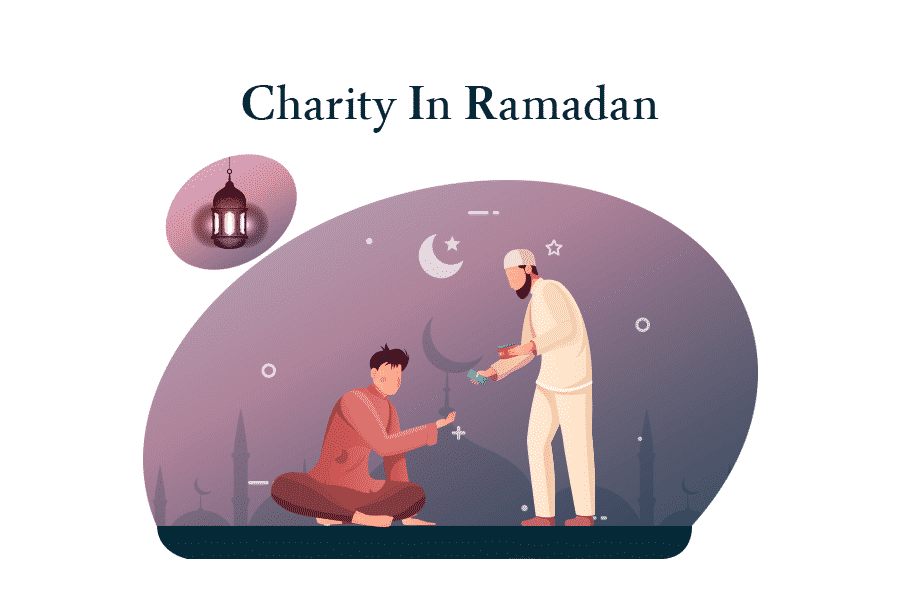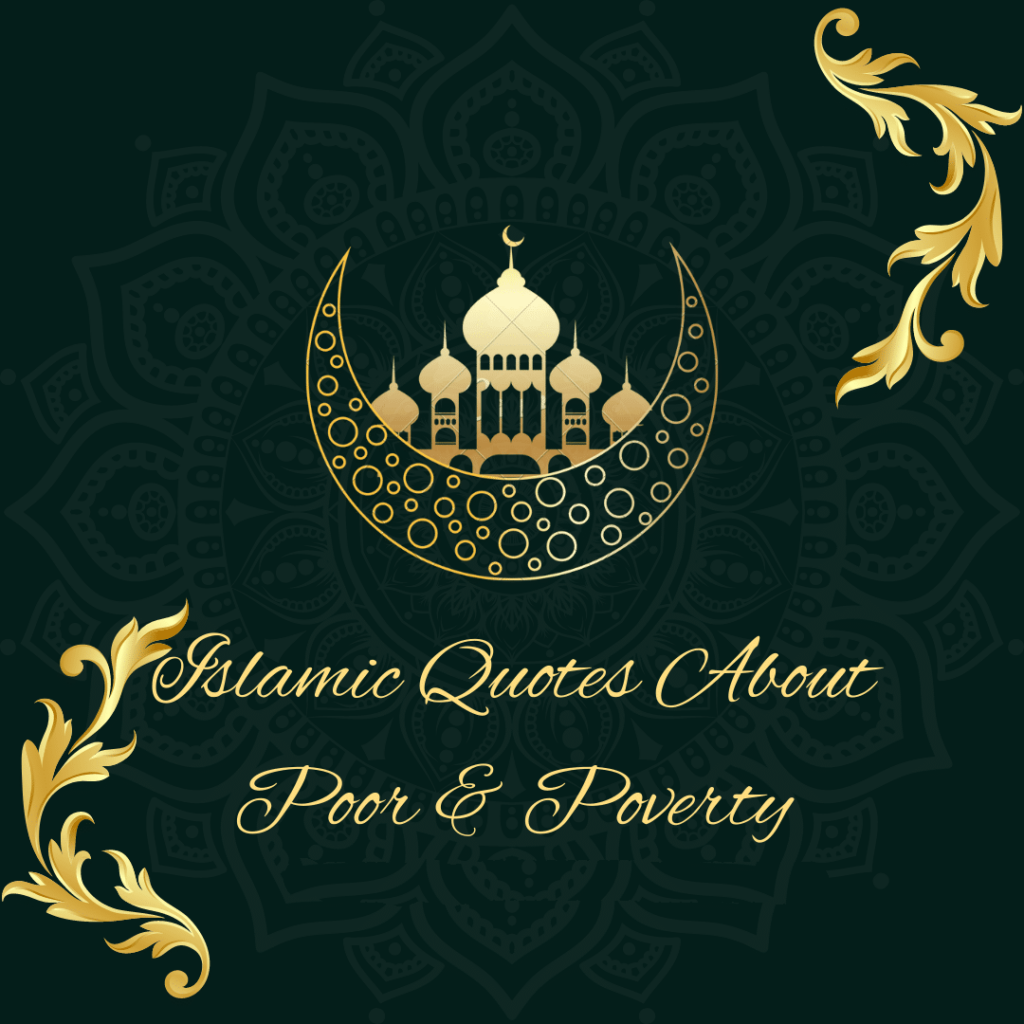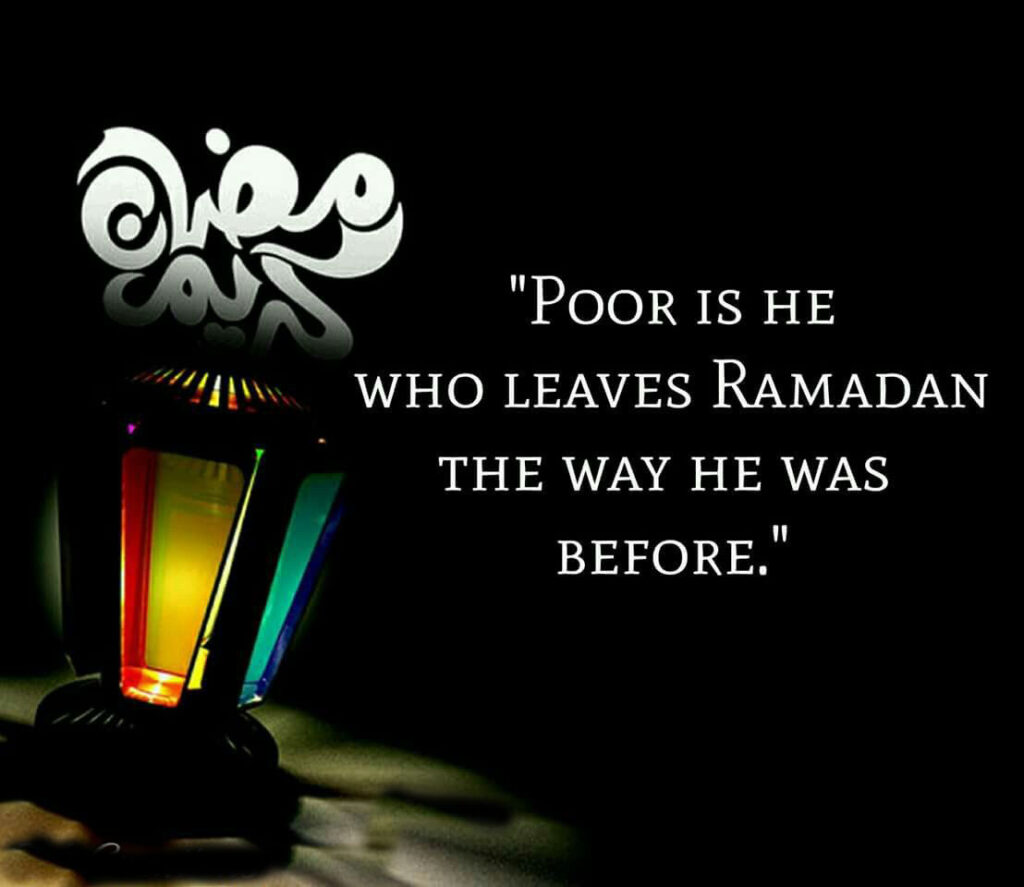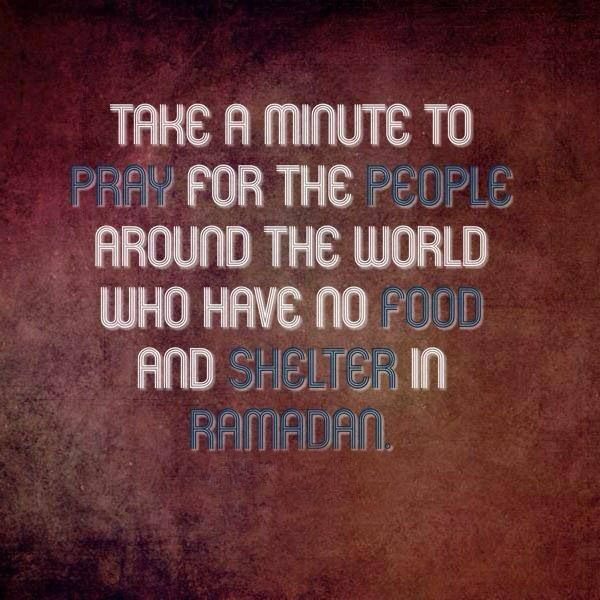Ramadan is a holy month in the Islamic calendar when Muslims around the world fast from dawn to sunset. While fasting is a fundamental aspect of this month, it is also a time for self-reflection, spiritual growth, and acts of kindness. One of the most significant acts of kindness during Ramadan is helping the poor.
The act of giving to those in need is highly regarded in Islam and is considered an essential aspect of the faith. The Quran instructs Muslims to help the poor and needy and to be charitable towards others. Ramadan provides an excellent opportunity for Muslims to put these teachings into practice.
During Ramadan, Muslims are encouraged to donate to charity and give to the poor in various ways. This can include giving money, food, or other forms of assistance to those who are struggling financially. It is also common for Muslims to organize iftar meals for the poor, where they break their fasts together at sunset.
Helping the poor during Ramadan not only benefits the recipients of the aid but also brings immense spiritual benefits to the giver. Giving to others is considered an act of worship and is believed to earn blessings and forgiveness from Allah.
Moreover, helping the poor during Ramadan fosters a sense of community and empathy. It reminds us that we are all part of a broader society and that it is our responsibility to support those in need. It also creates an opportunity to build stronger relationships with others and promote social cohesion.
In conclusion, helping the poor during Ramadan is a vital aspect of the faith that provides both spiritual and social benefits. By supporting those in need, we demonstrate our commitment to the Islamic values of compassion, generosity, and social responsibility.
Table of Contents
Ramadan and Charity: A Time to Give Back to the Needy
Ramadan is a month of spiritual reflection and worship for Muslims worldwide. It is also a time when Muslims prioritize giving to charity and helping those in need. Charity, known as “zakat” in Islam, is one of the five pillars of Islam and is a fundamental aspect of the faith. During Ramadan, Muslims are encouraged to increase their charitable giving and help those who are less fortunate.
The act of giving in Ramadan is considered particularly significant, as it is believed that the rewards for good deeds are multiplied during this holy month. Muslims are encouraged to donate generously to charitable organizations or directly to those in need, such as the poor, orphans, and refugees.
Charitable giving during Ramadan takes many forms. Muslims may choose to donate money, food, clothing, or other essentials to those who are struggling. Some organizations provide iftar meals or distribute food packages to families in need, while others support healthcare and education initiatives in impoverished communities.
Giving to charity during Ramadan is not only a religious obligation but also a way to connect with others and promote social justice. Muslims are encouraged to seek out those in need in their local communities and beyond and to extend a helping hand to those who may be struggling.
Ramadan is a time when Muslims reflect on their blessings and express gratitude for all that they have. It is also a time to acknowledge the suffering of others and to take action to alleviate their pain. By giving to charity during Ramadan, Muslims can contribute to creating a more just and equitable society and promote the values of compassion and generosity that are at the heart of Islam.
The Rewards of Generosity in Ramadan: Helping the Less Fortunate
Ramadan is a time when Muslims around the world fast, pray, and engage in acts of charity and generosity. In Islam, giving to charity is considered a virtuous act that not only benefits the recipient but also brings spiritual rewards to the giver. During Ramadan, the rewards of generosity are believed to be particularly significant, and Muslims are encouraged to give generously to those who are less fortunate.
The Quran teaches that charity is a means of purification and a way to seek Allah’s pleasure. Muslims are instructed to give to those in need and to do so without expecting anything in return. Giving to charity during Ramadan is considered a form of worship that earns immense rewards and blessings from Allah.
In addition to the spiritual benefits, giving to charity during Ramadan has many practical benefits as well. For example, it can help alleviate poverty, hunger, and suffering in communities and promote social justice. It also helps build stronger communities by fostering a sense of empathy, solidarity, and shared responsibility.
Charitable giving during Ramadan takes many forms, including donating money, food, clothing, and other essentials to those who are in need. Many organizations, both local and international, provide opportunities for Muslims to donate to various causes, such as supporting refugees, providing healthcare and education to impoverished communities, and assisting orphans and widows.
Moreover, giving to charity during Ramadan is not limited to Muslims only. It is a time when people of all faiths and backgrounds come together to support those who are less fortunate. By engaging in acts of generosity and compassion, we can build bridges of understanding and strengthen our bonds as a global community.
In conclusion, the rewards of generosity in Ramadan are manifold. By giving to those in need, we not only fulfill our religious obligations but also contribute to creating a more just and equitable society. Through our acts of kindness and compassion, we can make a difference in the lives of others and earn immense spiritual rewards in the process.
Ramadan and Social Responsibility: Giving to the Poor as an Act of Worship
Ramadan is a month of spiritual reflection, worship, and acts of kindness for Muslims around the world. One of the most important acts of kindness during this holy month is giving to the poor. This act of giving is rooted in the concept of social responsibility, which is a central tenet of Islam.
In Islam, social responsibility is about recognizing the needs of others and taking action to address them. It is about showing compassion and empathy towards those who are less fortunate and promoting social justice. Giving to the poor during Ramadan is considered an act of worship that earns immense spiritual rewards and helps build a more just and equitable society.
The Quran instructs Muslims to give to the poor and to be charitable towards others. Muslims are encouraged to give not just during Ramadan, but throughout the year, and to do so with sincerity and compassion. The act of giving is considered a means of purification and a way to seek Allah’s pleasure.
During Ramadan, Muslims are encouraged to increase their charitable giving and to seek out those in need in their local communities and beyond. This can include donating money, food, clothing, or other essentials to those who are struggling. It is also common for Muslims to organize iftar meals for the poor, where they break their fasts together at sunset.
Giving to the poor during Ramadan has many practical benefits as well. It helps alleviate poverty and hunger in communities, promotes social justice, and fosters a sense of empathy and solidarity. It is also a way to build stronger communities and promote a sense of shared responsibility.
In conclusion, giving to the poor during Ramadan is a powerful act of worship that promotes social responsibility and builds stronger communities. By showing compassion and empathy towards those who are less fortunate, we can earn immense spiritual rewards and contribute to creating a more just and equitable society.
Giving with a Generous Heart: Inspiring Quotes on Helping the Poor During Ramadan
- “The believer’s shade on the Day of Resurrection will be their charity.” – Prophet Muhammad (peace be upon him)
- “The best charity is that given in Ramadan.” – Prophet Muhammad (peace be upon him)
- “Whoever feeds a fasting person will have a reward like that of the fasting person, without any reduction in his reward.” – Prophet Muhammad (peace be upon him)
- “Charity is a form of worship in Islam. It is a means of purifying your wealth and earning Allah’s blessings.” – Sheikh Yasir Qadhi
- “Ramadan is a time of reflection and generosity. It is an opportunity to help those in need and to be grateful for what we have.” – Recep Tayyip Erdogan
- “The month of Ramadan is a time for reflection and giving. It is a time to show compassion and generosity towards those who are less fortunate.” – Imran Khan
- “The spirit of Ramadan is about giving with a generous heart, helping those in need, and spreading kindness and love.” – Randa Abdel-Fattah
- “Ramadan is not only about abstaining from food and drink but also about abstaining from selfishness and greed. It is a time to give to those in need and to show compassion and empathy towards others.” – Nouman Ali Khan
- “Charity is not just giving, it’s making a difference.” – Kathy Calvin
- “The true meaning of Ramadan is to share your blessings with others. It is about giving from the heart and helping those who are less fortunate.” – Omar Suleiman
The Power of Collective Giving: Charity in Ramadan and Its Impact on Society
Charity in Ramadan has a powerful impact on society, not only in terms of alleviating poverty and suffering but also in promoting social cohesion and solidarity. Collective giving, in particular, has the potential to create transformative change and address some of the most pressing social issues facing communities around the world.
Collective giving is the act of pooling resources together to support a common cause or organization. It is a powerful tool for social change, allowing individuals to combine their resources and make a greater impact than they could alone. During Ramadan, collective giving takes on added significance, as Muslims come together to support those in need and promote social justice.
One of the key benefits of collective giving is its ability to create a sense of community and solidarity. By working together towards a common goal, individuals are able to build relationships, trust, and a shared sense of purpose. This can have a positive impact not only on the individuals involved but also on the wider community, promoting a sense of social cohesion and unity.
Collective giving can also be a more efficient and effective way to address social issues. By pooling resources, individuals and organizations can achieve economies of scale and maximize their impact. This can be particularly important in addressing large-scale issues such as poverty, hunger, and homelessness, where individual efforts may be insufficient.
Furthermore, collective giving can help promote systemic change by addressing the root causes of social issues. By supporting organizations that work towards systemic change, individuals can contribute to larger-scale solutions that address the underlying causes of poverty and inequality.
In conclusion, charity in Ramadan has a powerful impact on society, particularly when it is practiced through collective giving. By pooling resources and working together towards a common goal, individuals can build social cohesion, promote systemic change, and make a greater impact in addressing some of the most pressing social issues facing communities around the world.
The Blessings of Ramadan: Helping the Poor and Building Stronger Communities
Ramadan is a month of blessings and opportunities for Muslims to deepen their faith and spirituality. One of the most significant aspects of Ramadan is the emphasis on charity and helping those in need. By giving to the poor, Muslims not only fulfill their religious obligations but also contribute to building stronger communities and promoting social justice.
There are many blessings associated with helping the poor during Ramadan. First and foremost, it is a way to seek the pleasure of Allah and earn His rewards. Muslims believe that giving to the poor is a form of worship and a means of purifying one’s wealth. It is a way to demonstrate gratitude for the blessings that Allah has bestowed upon us and to share those blessings with others.
Moreover, helping the poor during Ramadan can have a transformative impact on individuals and communities. By providing basic needs such as food, shelter, and clothing, Muslims can alleviate the suffering of those who are less fortunate and promote social justice. This can contribute to building stronger communities based on compassion, empathy, and solidarity.
In addition, helping the poor during Ramadan can also have a positive impact on one’s own spiritual growth. By practicing generosity and compassion, individuals can cultivate a greater sense of empathy and humility. This can lead to a deeper understanding of one’s own blessings and a stronger commitment to social justice and activism.
Overall, Ramadan is a time of blessings and opportunities to build stronger communities by helping the poor. By giving to those in need, Muslims can demonstrate their commitment to their faith, contribute to social justice, and cultivate a deeper sense of empathy and compassion. Through these acts of kindness, individuals can create a more just and equitable world, one that reflects the values of Ramadan and the teachings of Islam.
The Spirit of Ramadan: Fasting, Charity, and Compassion for the Less Privileged
Ramadan is a month of spiritual reflection and renewal for Muslims around the world. It is a time when Muslims engage in acts of worship and spiritual practices, including fasting, prayer, and charity. Fasting is a central part of Ramadan, and it is a time when Muslims abstain from food and drink during daylight hours. This act of self-discipline and devotion helps to deepen one’s connection to Allah and promote spiritual growth.
In addition to fasting, charity is also an important aspect of Ramadan. Muslims are encouraged to give generously to the less privileged and help those in need. This act of compassion and kindness is a way to seek Allah’s blessings and demonstrate gratitude for the blessings that we have been given.
During Ramadan, Muslims are reminded of the importance of compassion and empathy towards those who are less fortunate. By giving to the poor and supporting charitable causes, Muslims can help to alleviate suffering and promote social justice. This act of kindness and generosity can have a transformative impact on individuals and communities, promoting a greater sense of empathy and understanding.
Moreover, Ramadan is a time to reflect on the plight of the less privileged and marginalized in our communities. By fasting and engaging in acts of worship, Muslims can develop a deeper sense of empathy and compassion towards those who are struggling. This can lead to greater activism and advocacy for social justice, as Muslims seek to create a more equitable and just world.
In conclusion, Ramadan is a time of spiritual renewal, fasting, and charity. Through acts of compassion and kindness towards the less privileged, Muslims can deepen their connection to Allah and promote social justice. By reflecting on the plight of those who are struggling, Muslims can cultivate a greater sense of empathy and understanding, leading to greater activism and advocacy for social justice. Through these acts of worship and charity, Muslims can embody the spirit of Ramadan and the teachings of Islam, creating a more just and equitable world.
Ramadan Reflections: How Helping the Poor Brings Us Closer to Allah and to Each Other.
Ramadan is a time of spiritual reflection and self-improvement for Muslims around the world. It is a time when Muslims strive to deepen their connection to Allah and to cultivate a greater sense of compassion and empathy towards others. One of the most important aspects of Ramadan is the emphasis on charity and helping those in need.
When we help the poor and those who are less fortunate, we are fulfilling an important religious obligation and seeking the pleasure of Allah. By giving generously, we are demonstrating our gratitude for the blessings that Allah has bestowed upon us and sharing those blessings with others. This act of generosity and kindness is a way to seek Allah’s blessings and draw closer to Him.
Moreover, helping the poor during Ramadan can also bring us closer to each other as a community. When we come together to support charitable causes and to help those who are struggling, we are building stronger bonds of empathy and solidarity. This act of collective giving and support can have a transformative impact on our communities, promoting greater compassion and understanding towards each other.
In addition, helping the poor during Ramadan can also have a positive impact on our own spiritual growth. By practicing generosity and compassion, we can cultivate a greater sense of empathy and humility. This can lead to a deeper understanding of our own blessings and a stronger commitment to social justice and activism.
Overall, helping the poor during Ramadan is an essential aspect of our faith and a way to draw closer to Allah and to each other. By giving generously and practicing kindness and compassion towards those in need, we can embody the teachings of Islam and promote greater empathy and solidarity in our communities. Through these acts of worship and charity, we can reflect on the blessings that Allah has bestowed upon us and work towards creating a more just and equitable world.
Conclusion:
In conclusion, Ramadan is a time of spiritual renewal and self-reflection for Muslims around the world. It is a time when we seek to deepen our connection to Allah and to cultivate a greater sense of compassion and empathy towards others. One of the most important aspects of Ramadan is the emphasis on charity and helping those in need.
Through acts of generosity and kindness towards the less fortunate, we can seek Allah’s blessings and draw closer to Him. Helping the poor during Ramadan can also bring us closer to each other as a community, promoting greater empathy and solidarity.
Moreover, helping the poor during Ramadan can have a positive impact on our own spiritual growth, leading to a deeper understanding of our blessings and a stronger commitment to social justice and activism.
As we reflect on the blessings of Ramadan and the importance of helping the poor, let us strive to embody the teachings of Islam and promote greater compassion and empathy towards others. Through these acts of worship and charity, we can work towards creating a more just and equitable world, one in which all people are treated with dignity and respect.






